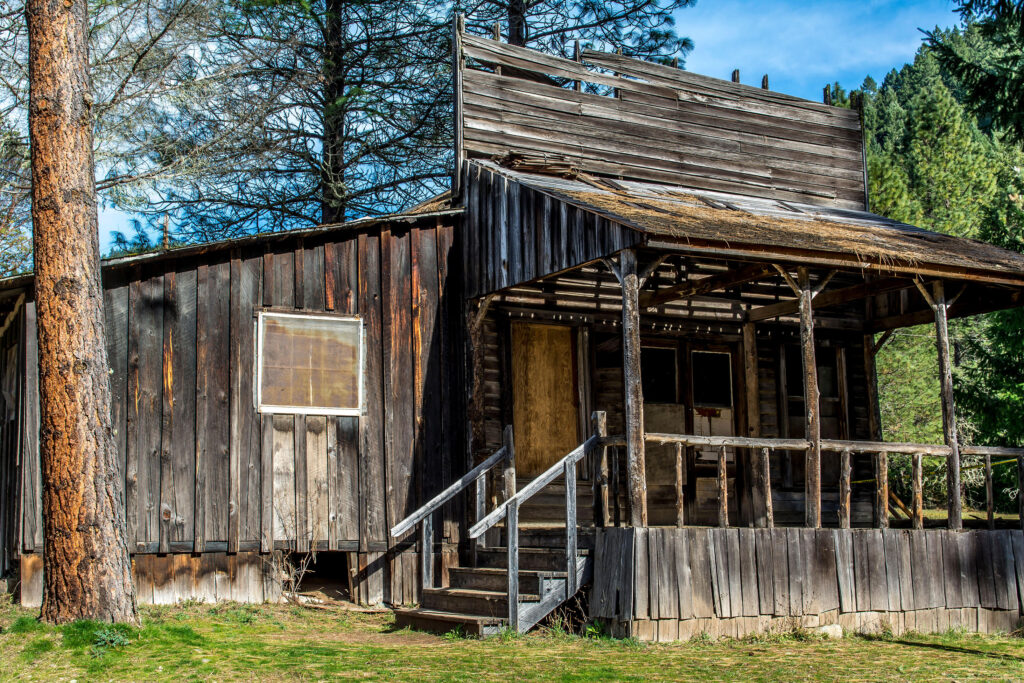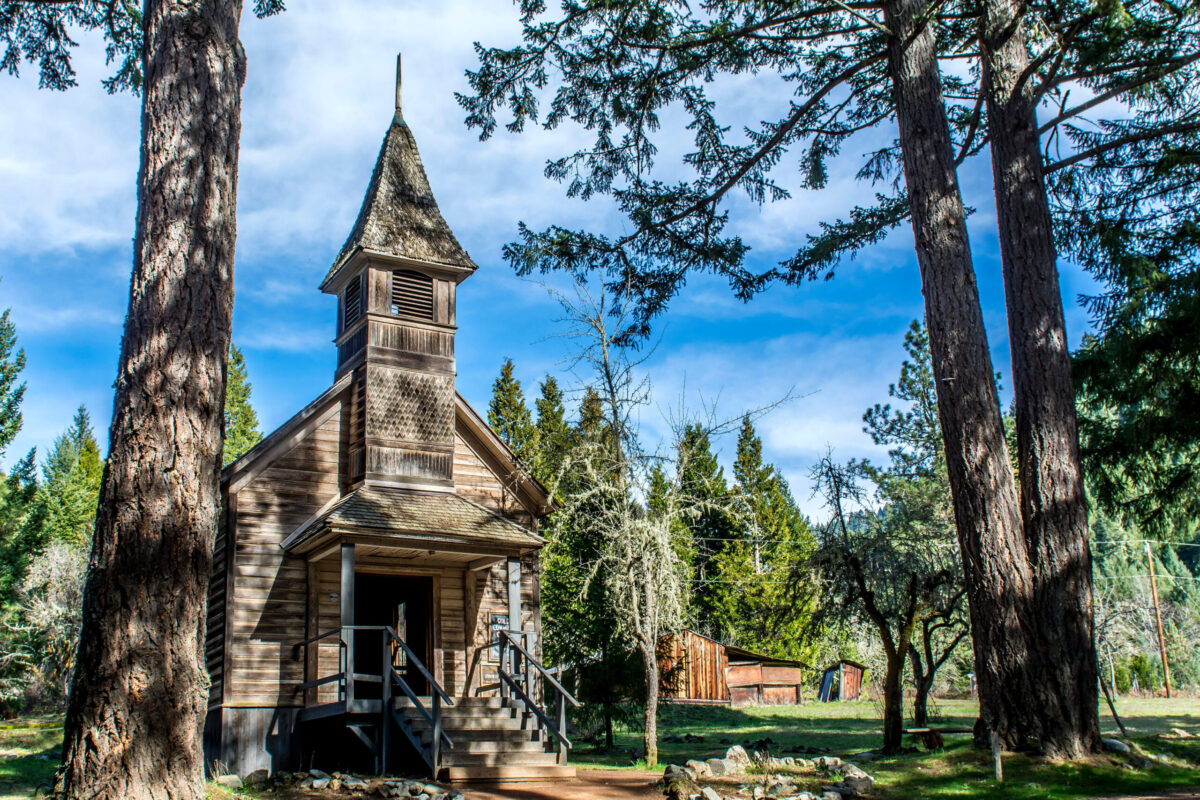By the early 1850s gold fever had spread across the American West. Southwestern Oregon Territory was no exception, as placer miners had descended on Coyote Creek in what today is Josephine County. Camps sprang up, and the goldfields remained a beehive of activity until gold strikes in neighboring Idaho in the 1860s drew the miners away. But the Coyote Creek diggings would experience a resurgence, and a town would be born of it.
After a few short years the excitement in Idaho faded. Miners returned to Coyote Creek to find 500 Chinese laborers working the old claims for 10 cents a day plus rice. The miners demanded their claims be returned, and the Chinese contractor yielded. Again, small camps sprang up, including one named Goldville.
By the late 1870s placer mining had given way to more efficient hydraulic mining, bringing a whole new flood of gold seekers. Among them was the Rev. William Ruble, who arrived with his wife, sons Bill and Schuyler and their families. The Rubles were Campbellites, aka Disciples of Christ, committed to restoring an early form of Christianity that adhered to strict doctrine. Disenchanted with the evils of society, they had taken to the Oregon Trail in 1853 and landed first in Salem, where they took up farming and the nursery business.
Over the span of a dozen years the Rev. Ruble bought up the majority of mines and claims in the area. He also set up mining businesses for his sons. William and son Schuyler invented the Ruble hydraulic elevator, designed to separate coarse rock from finer material in a placer mine.
The Rev. Ruble and sons set about improving Goldville and founded it as the town of Golden in 1890, the post office opening in 1896. After building the family residence and a Campbellite church, the Rubles added a school, a general store and other homes. Theirs was a monumental effort at civilizing the area, though some miners, particularly single ones, were less enthusiastic about the mores of its founders. The Campbellites did not permit the busy saloons and brothels of other prosperous camps, nor is there a record of the town ever hosting a dance. Miners seeking such pleasures had to travel to the town of Placer, a few miles south on Graves Creek, which did a booming business in sin.
Golden itself remained relatively small, never home to more than 200 or so people, with another several hundred in the surrounding area. Despite its dearth of entertainment, the town held on for nearly 30 years, only to fade as the ore faded in value. Perhaps sensing its decline and his own, the Rev. Ruble left in 1901, his sons and their families soon following his example. The founder of Golden died in Salem in 1905.
A year later Golden school reported three dozen students in attendance. But the exodus continued, and the post office shuttered in 1920. Mining dribbled along into the mid-20th century, but the town faded into a ghost.

Today the Campbellites’ quaint and attractive 1892 Golden Church still stands. Nearby is the Rubles’ house, also built in 1892. Also surviving is a 1904 general store, an outhouse and the remains of other outbuildings, including the carriage house.
There are no extant businesses in Golden, but the church is always open. Nearby is a small cemetery, though oddly enough no residents of Golden reside in it. In fact, no one has found eternal rest there, for the little graveyard sprouted up as a small-screen stage set. In 1972 the producers of the popular Western series Gunsmoke filmed an episode in Golden, one scene requiring a cemetery, and the rest is TV history. Visitors unaware of its short history still leave coins and trinkets atop the fictitious grave markers. The town and its pretend cemetery have since served as a backdrop for other Western productions.
In the 1990s concerned residents formed the Golden Coyote Wetlands to preserve the town and adjacent creek. Owned today by the Oregon Parks and Recreation Department, Golden is a state heritage site and listed on the National Register of Historic Places. Those interested in a longer visit can stay in a nearby campground off Coyote Creek Road, which runs through town.
Despite its lack of what many miners considered “essentials,” Golden survived more than 130 years to earn protected status for coming generations. Most ghost towns of southern Oregon weren’t as fortunate, having fallen into ruin or been stamped out of existence beneath the ever rolling wheels of progress.
This article originally appeared in the Spring 2024 issue of Wild West magazine.





